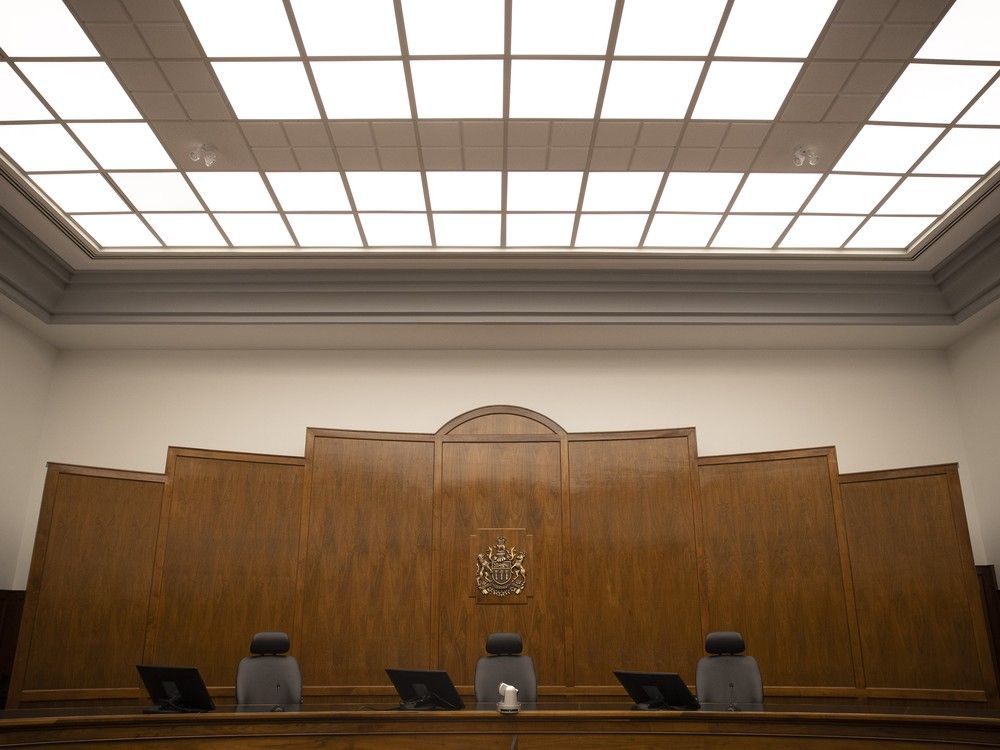World
Saskatchewan Court Overturns Sexual Assault Conviction, Orders New Trial

The Saskatchewan Court of Appeal has quashed a sexual assault conviction, citing concerns over the fairness of the trial. The court ordered a new trial for a man referred to as D.L. in a decision released on August 21, 2023. The ruling stemmed from extensive questioning by the trial judge, which the appeal court found compromised the appearance of fairness.
D.L. had initially faced a conviction and received a 12-month jail sentence, followed by another 12 months of probation, after a trial in the Court of King’s Bench. He appealed both the conviction and the sentence, arguing that the trial judge’s questioning during the proceedings undermined the trial’s integrity. However, his appeal was dismissed in February 2024 by a judge in Swift Current. D.L. and his legal team, including lawyers Mervin Nidesh and Linh Pham, took the case to the province’s highest court.
In her ruling, Justice Jillyne Drennan stated, “I agree with D.L. that the summary conviction appeal judge erred in concluding that the trial judge’s questioning of him did not undermine trial fairness.” The decision highlights the importance of maintaining a neutral stance during trials to ensure that all parties are treated fairly.
The alleged incident occurred in November 2020, involving D.L. and his niece, then 27 years old. D.L., 53 at the time, had hired her to assist with home repairs. Both parties testified that they consumed alcohol that evening. The complainant claimed she awoke to find D.L. over her naked and alleged inappropriate physical contact. D.L. denied these claims, stating he was unaware she was present and cited physical limitations due to injuries.
Justice Drennan emphasized that trial judges should only question witnesses as necessary for clarification. The appeal court found that the trial judge asked D.L. an excessive 59 questions after both the Crown and defense had already questioned him. While questioning is not inherently problematic, the nature and volume of inquiries raised concerns about the judge’s impartiality.
The trial judge’s extensive questioning suggested an adversarial approach, which could create a perception of bias. “The questions, cumulatively, gave rise to a strong appearance of the trial judge having entered the fray in an adversarial way,” Drennan wrote. The information obtained through this line of questioning became pivotal in the judge’s decision to convict D.L.
This ruling underscores the necessity for judicial neutrality in the courtroom and reaffirms the principles of a fair trial. The Saskatchewan Court of Appeal’s decision serves as a reminder of the legal system’s commitment to upholding justice and the rights of the accused.
As the case returns to trial, both parties will have another opportunity to present their arguments under the scrutiny of a new judge, ensuring a fairer process in pursuit of justice.
-

 Politics4 weeks ago
Politics4 weeks agoSecwepemc First Nation Seeks Aboriginal Title Over Kamloops Area
-

 World5 months ago
World5 months agoScientists Unearth Ancient Antarctic Ice to Unlock Climate Secrets
-

 Entertainment5 months ago
Entertainment5 months agoTrump and McCormick to Announce $70 Billion Energy Investments
-

 Science5 months ago
Science5 months agoFour Astronauts Return to Earth After International Space Station Mission
-

 Lifestyle5 months ago
Lifestyle5 months agoTransLink Launches Food Truck Program to Boost Revenue in Vancouver
-

 Technology3 months ago
Technology3 months agoApple Notes Enhances Functionality with Markdown Support in macOS 26
-

 Lifestyle3 months ago
Lifestyle3 months agoManitoba’s Burger Champion Shines Again Amid Dining Innovations
-

 Top Stories2 months ago
Top Stories2 months agoUrgent Update: Fatal Crash on Highway 99 Claims Life of Pitt Meadows Man
-

 Politics4 months ago
Politics4 months agoUkrainian Tennis Star Elina Svitolina Faces Death Threats Online
-

 Sports5 months ago
Sports5 months agoSearch Underway for Missing Hunter Amid Hokkaido Bear Emergency
-

 Politics5 months ago
Politics5 months agoCarney Engages First Nations Leaders at Development Law Summit
-

 Technology5 months ago
Technology5 months agoFrosthaven Launches Early Access on July 31, 2025





















